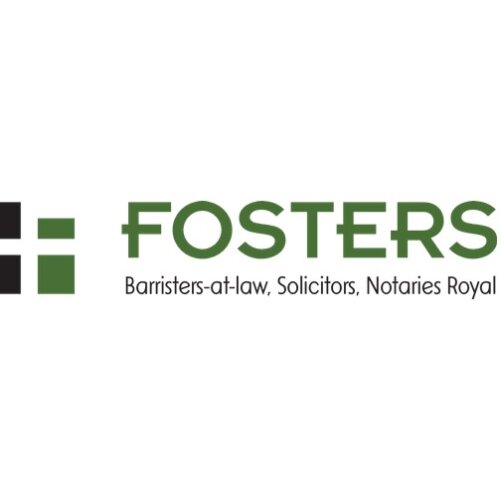Best Banking & Finance Lawyers in Castries
Share your needs with us, get contacted by law firms.
Free. Takes 2 min.
List of the best lawyers in Castries, Saint Lucia
About Banking & Finance Law in Castries, Saint Lucia
Banking and Finance Law in Castries, Saint Lucia, plays a pivotal role in the country's economic framework. Castries, as the capital city, is a hub for various financial activities and services, including high street banking, investment banking, insurance, and financial advisory services. The legal landscape is designed to ensure the integrity, transparency, and stability of financial transactions and institutions. The financial sector in Saint Lucia is regulated by a combination of domestic legislation and regional frameworks, primarily influenced by the Eastern Caribbean Central Bank (ECCB), which seeks to ensure a stable financial environment that supports economic growth and development.
Why You May Need a Lawyer
Individuals and businesses may find themselves needing legal advice in Banking & Finance for a myriad of reasons:
- Navigating complex financial contracts and agreements, such as loans, mortgages, and leases, requiring a thorough understanding.
- Addressing compliance issues with both local and regional financial regulations.
- Resolving disputes with financial institutions regarding transactions or services provided.
- Consulting on tax-related matters, particularly for investors or companies with international dealings.
- Assisting with debt recovery or restructuring efforts for individuals or businesses facing financial difficulties.
- Guiding foreign investors or businesses on the regulatory requirements to operate within Saint Lucia.
Local Laws Overview
The legal framework governing Banking & Finance in Castries includes several key regulations:
- The Eastern Caribbean Central Bank Agreement Act establishes the ECCB, which regulates currency issuance and oversees banking stability across Saint Lucia and other member states.
- The Banking Act regulates the licensing and conduct of banking institutions, ensuring their operations align with approved financial practices.
- Anti-money laundering laws require strict compliance from financial institutions to prevent illicit financial activities, safeguarding the region's financial system.
- Contract laws are integral for validating agreements between parties in financial transactions, ensuring all terms are legally binding and enforceable.
Frequently Asked Questions
What is the role of the Eastern Caribbean Central Bank?
The Eastern Caribbean Central Bank (ECCB) is responsible for the monetary stability of member states, including Saint Lucia. It regulates banking institutions, manages the currency supply, and ensures economic growth within the region.
Do I need a lawyer to draft a financial contract?
While it's possible to draft a financial contract without a lawyer, having legal counsel can ensure the document is comprehensive, complies with local laws, and protects your interests.
How can a lawyer assist with financial disputes?
A lawyer can help mediate disputes, represent you in negotiations or court, and provide advice on the best legal strategies to resolve financial conflicts with minimal impact.
What are the consequences of non-compliance with banking regulations?
Non-compliance can result in significant legal penalties, including fines and operational restrictions, and it can damage an institution's reputation and trustworthiness.
Can foreign investors operate in Saint Lucia?
Yes, foreign investors can operate in Saint Lucia. However, they must comply with local business registration processes and any sector-specific regulations that might apply, such as those in the banking industry.
What should I do if I'm a victim of a banking fraud?
You should immediately report the fraud to your bank and the local authorities. Consulting a lawyer can help you understand your rights and potential remedies available under local law.
Are insurance services under the same regulation as banking in Castries?
Insurance services are regulated separately from banking, though both fall under the financial sector's broader scope. The Financial Services Regulatory Authority oversees insurance companies' operations.
Is there a deposit guarantee scheme in Saint Lucia?
Yes, Saint Lucia, through the ECCB, participates in a deposit insurance scheme that provides protection for depositors in licensed financial institutions.
What are some common banking services available in Castries?
Common services include savings and current accounts, personal and commercial loans, mortgages, investment products, and credit card facilities.
How is investor protection ensured in Saint Lucia?
Investor protection is enforced through stringent regulatory frameworks, ensuring transparent and fair treatment, with legal recourse available in cases of malpractice or fraud.
Additional Resources
Several resources can be beneficial for those seeking advice or information related to Banking & Finance:
- The Eastern Caribbean Central Bank (ECCB) provides regulatory information and economic reports essential for financial decision-making.
- The Financial Services Regulatory Authority (FSRA) in Saint Lucia serves as a guide for compliance and regulations related to financial and insurance services.
- Legal Aid services and private law firms in Castries offer specialized legal advice tailored to Banking & Finance issues.
Next Steps
If you need legal assistance in Banking & Finance, consider the following steps:
- Identify the specific legal issue you're facing and gather all relevant documents and information related to your situation.
- Contact local legal firms specializing in Banking & Finance, specifying your needs for targeted assistance.
- Utilize online resources or consultations to understand your situation better and explore preliminary options before formal engagement.
- Ensure you understand the fees associated with legal representation and have a clear agreement with your lawyer regarding the scope of services and expected outcomes.
Lawzana helps you find the best lawyers and law firms in Castries through a curated and pre-screened list of qualified legal professionals. Our platform offers rankings and detailed profiles of attorneys and law firms, allowing you to compare based on practice areas, including Banking & Finance, experience, and client feedback.
Each profile includes a description of the firm's areas of practice, client reviews, team members and partners, year of establishment, spoken languages, office locations, contact information, social media presence, and any published articles or resources. Most firms on our platform speak English and are experienced in both local and international legal matters.
Get a quote from top-rated law firms in Castries, Saint Lucia — quickly, securely, and without unnecessary hassle.
Disclaimer:
The information provided on this page is for general informational purposes only and does not constitute legal advice. While we strive to ensure the accuracy and relevance of the content, legal information may change over time, and interpretations of the law can vary. You should always consult with a qualified legal professional for advice specific to your situation.
We disclaim all liability for actions taken or not taken based on the content of this page. If you believe any information is incorrect or outdated, please contact us, and we will review and update it where appropriate.
Browse banking & finance law firms by service in Castries, Saint Lucia
Castries, Saint Lucia Attorneys in related practice areas.










